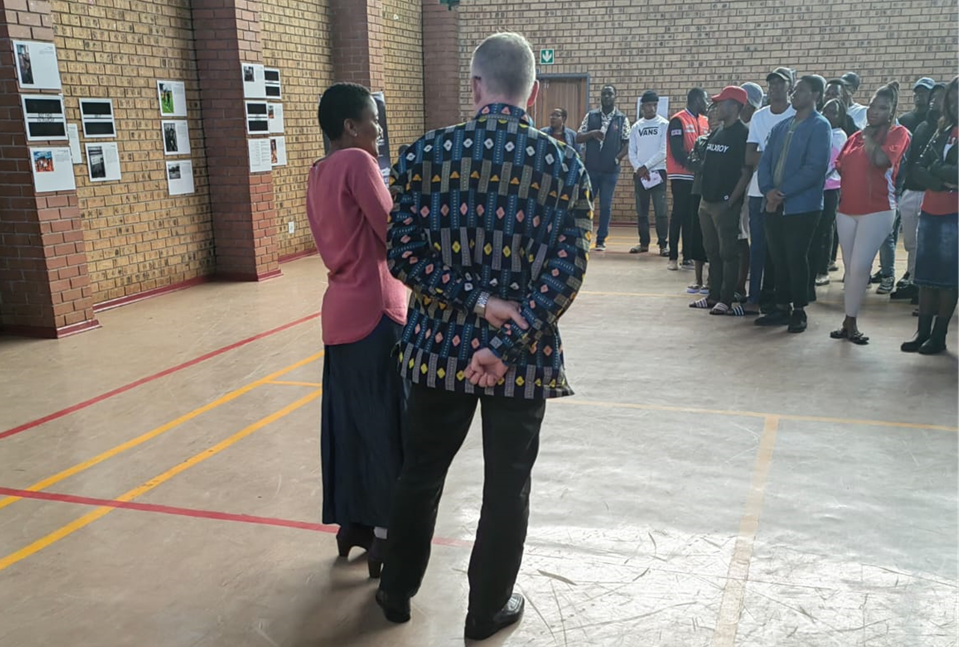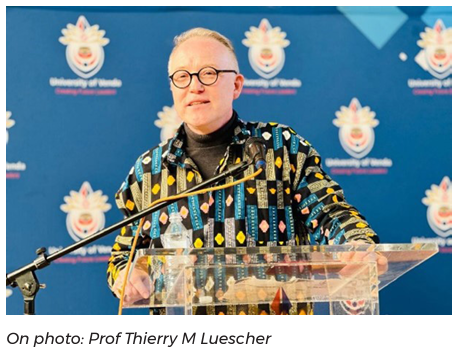The University of Venda, under the leadership of the Department of Youth in Development and particularly my good friend and colleague, Dr Keamo Morwe, hosted the 2024 Youth Month Celebrations on 17 June (one day after the actual youth day) with panel and plenary discussions, debates, and a luncheon. I was invited as guest speaker and guest panelist.
In my public lecture to the assembled student and staff body I reflected on 'entrepreneurial student activism' as a form of activism that builds bridges between campus and community, student life and livelihoods, political agency and economic freedom. In this speech I drew on my experiences over twenty years ago as a student vice-president at the University of Cape Town, where as an SRC, we adopted a student entrepreneurship policy and developed several structures to support student entrepreneurship. These included "Student Enterprises" as a holding company for student-run businesses on campus, including the student bookshop; the "Student Research Institute" which provided training to students and offered student-led research consultancy to campus and community clients; as well as other student-run social enterprises like "SHAWCO and RAG", "Ufundo" and so forth.
The Univen staff journalists summarised my lecture in their university magazine as follows:"In his lecture, Prof Luescher explored the contemporary realities faced by today’s youth, including their struggles and triumphs. He also shed light on the unique perspectives and innovative solutions that young people bring to society.
His talk sparked a lively and dynamic discussion among the students, who were inspired to reflect on the vital role of youth in shaping the future of our communities.
Prof Luescher also stressed the critical role that young people play in driving leadership and entrepreneur-ship. In his public lecture, he underscored the importance of empowering youth to take on leadership roles and explore entrepreneurial opportunities, noting that their unique perspectives and innovative ideas can spur economic growth and promote social change."
I also reflected on the various ways in which student entrepreneurship was being supported nationally by Universities South Africa (USAf) and at the University of Venda. This led me to recite a 'found poem' called "Towards a student entrepreneurial training ground" to conclude my talk (see below).
Towards a student entrepreneurial training ground
I found this poem when I was reading the USAf Entrepreneurship Development in Higher Education (EDHE) programme, the national initiative for student entrepreneurship. I call it "Towards a student entrepreneurial training ground". It goes like this:
The context: graduate and youth unemployment
The resources: here at university
The goals: create enterprises, wealth and jobs
* * *
Instilling the mind of the entrepreneur
with relevant knowledge,
transferable skills
financial literacy and
business principles
In every discipline, within and across.
Developing into entrepreneurial universities
With a supportive environment
Adopting and adapting
Strategies and projects
through innovation and support.
* * *
Four Cs throughout:
Concept and Competence
Connections and Courage.
Concept: What will we do? What is the plan? How can we offer value?
Competence: Who knows what? What can we do? And what we need to learn?
Connections asks: Who’s who? Who does what? Who is our network and client?
Courage boldly moves ahead for: Why not now? Let’s get it done! Let’s persevere in struggle.
* * *
Academics and student affairs
embedding entrepreneurship
in curriculum and co-curriculum
in pedagogies, methodologies,
epistemologies, and ontologies
relevant to our context.
Economically active
Taking ownership
to implement initiatives.
to start a career here
and generate income.
During and after campus
ending student poverty
defeating unemployment
crating livelihoods
as students and graduate entrepreneurs.
T Luescher 2024



